The face of Indian despair 6:44
(CNN) -
On April 17, before the state elections, Indian Prime Minister Narendra Modi, who was not wearing a mask, boasted to a sea of cheering supporters: 'I have never seen so many people in a rally".
His country was on the brink of a humanitarian crisis.
That day, India recorded more than 261,000 new cases of coronavirus, more than many countries have seen during the entire pandemic.
And it was only going to get worse.
Every day since April 22, the country has reported more than 300,000 new cases, sometimes up to half of the daily cases reported globally.
The capital, New Delhi, is running out of wood for cremations.
Hospitals are full and lack oxygen.
Only 2% of the population has been fully vaccinated.
Foreign leaders are now rushing to help India.
This covid-19 hospital in India is so bad that patients want to leave
While the Hindu nationalist spokesperson for Modi's Bharatiya Janata Party (BJP), Narendra Taneja, told CNN this week that the responsibility for the second wave in India lay "first and foremost" with the government, he argued that the crisis could not have expected, even though countless countries are being hit by second waves as new variants emerge globally.
Others in Modi's orbit have argued that state governments are to blame for failing to impose regional lockdowns and mismanaging their health care systems.
Last weekend, Health Minister Harsh Vardhan said the shortage of oxygen in hospitals was not a problem of supply but of distribution, which he said was the responsibility of state governments.
advertising
But many in India believe the responsibility lies with Modi and his Hindu nationalist government, which not only failed to prepare for a second wave, but also encouraged mass gatherings at Hindu festivals and political rallies, even in a highly contested state.
"The government has failed us all," Priyanka Gandhi Vadra, secretary general of the opposition Indian National Congress party, said in a statement this week.
"Even those of us who oppose and fight against them could not have foreseen a complete abdication of leadership and governance at such a devastating time as this."
1 of 23
|
Umar Farooq mourns at the grave of his mother, who died of coronavirus, after her burial in a cemetery in Srinagar on April 26, 2021. TAUSEEF MUSTAFA / AFP via Getty Images.
2 of 23
|
Health workers reject an ambulance at the main entrance of Lok Nayayak Jaiprakash Hospital in New Delhi on Sunday, April 25.
Many hospitals in the capital face shortages of supplies.
Narayan / Bloomberg / Getty Images
3 of 23
|
A relative of a Covid-19 victim is comforted by another during a cremation in Jammu on April 25.
Channi Anand / AP
4 of 23
|
People wait to recharge their oxygen cylinders at a refilling station in Allahabad on Saturday, April 24.Sanjay Kanojia / AFP / Getty Images
5 of 23
|
A man inspects an intensive care ward after a covid-19 hospital fire broke out in Virar on Friday, April 23.
At least 13 covid-19 patients died.
Rajanish Kakade / AP
6 of 23
|
This aerial photo, taken with a drone, shows a mass cremation in New Delhi on Thursday, April 22.
Danish Siddiqui / Reuters
7 of 23
|
Ambulances carrying COVID-19 patients line up in front of a government Hospital in Ahmedabad on April 22.
Ajit Solanki / AP
8 of 23
|
People line up for vaccinations at an indoor stadium in Guwahati on April 22.
Biju Boro / AFP / Getty Images
9 of 23
|
Several funeral pyres are burned in New Delhi on April 21.
AP
10 of 23
|
A relative of a COVID-19 victim cries during a cremation in New Delhi on Tuesday, April 20.
Naveen Sharma / SOPA Images / LightRocket / Getty Images
11 of 23
|
Police officers patrol a deserted street in New Delhi on April 20.
The city is closed until May 3.
Ganesh Chandra / SOPA Images / LightRocket / Getty Images
12 of 23
|
Signs inform people that a vaccination center in Mumbai ran out of vaccines on April 20.
Rafiq Maqbool / AP
13 of 23
|
Migrant workers crowd the Kaushambi bus station on April 19 trying to return home after a confinement order was announced in the capital.
Amarjeet Kumar Singh / SOPA Images / LightRocket / Getty Images
14 of 23
|
A woman expects to receive a COVID-19 vaccine in Mumbai on April 18.
Rafiq Maqbool / AP
15 of 23
|
Relatives of a COVID-19 victim mourn for their loved one outside a government hospital in Ahmedabad on April 17.
Ajit Solanki / AP
16 of 23
|
Migrant workers line up at a train station to leave Mumbai ahead of the April 14 lockdown.
Stringer / Getty Images
17 of 23
|
People gather in a Srinagar mosque on the first day of Ramadan on April 14.
Tauseef Mustafa / AFP / Getty Images
18 of 23
|
A Hindu priest puts a mask on an idol of the goddess Ashapura during Navaratri celebrations in Beawar on April 13. Sumit Saraswat / Pacific Press / LightRocket / Getty Images
19 of 23
|
Hindu men enter the Ganges River during the Kumbh Mela religious festival on April 12.
People also filled the streets of Haridwar for what is the largest religious pilgrimage on Earth, and the massive crowds generated concern.
Karma Sonam / AP
20 of 23
|
Protesters wearing protective suits lie on a street near the Election Commission office in Kolkata on April 7.
They were calling for the ongoing state legislative elections and their associated campaign rallies to be halted.
Samad / AFP / Getty Images
21 of 23
|
Children wear face shields in a martial arts class in Kolkata on April 5.
Dibyangshu Sarkar / AFP / Getty Images
22 of 23
|
Bharatiya Janata party supporters wear masks of Prime Minister Narendra Modi during an election rally in Sonarpur on April 3.
Samir Jana / Hindustan Times / Getty Images
23 of 23
|
Social distancing was not easy to achieve as people walked through a busy market in Old Delhi on March 27.
NurPhoto / Getty Images
Modi's promotional plays on the pandemic
India, a threat to the rest of the world 1:23
Modi has been willing to link to the positive aspects of India's pandemic responses.
The vaccinated Indians receive a certificate with Modi's face.
The covid relief fund, a charitable trust that pools voluntary contributions to help those affected, is called PM Cares, an acronym for First Minister's Citizen Assistance and Relief in Emergency Situations Fund Prime Minister's Emergency ').
This one also bears Modi's face on his official website.
With its name tied to these positive initiatives, a first wave that averted the catastrophic burden of cases some experts feared, and a roaring pharmaceutical industry that had produced a homegrown vaccine, India's pandemic response was on track to be a victory. of public relations for Modi.
The country was positioning itself to help other countries, having exported more than 66 million doses of vaccines, rather than being the one that needed help.
India is one of the top 10 buyers of covid-19 vaccines in the world, but they are running out
"(India) has saved the world, all of humanity, from a great tragedy by effectively controlling the coronavirus," Modi boasted at the World Economic Forum on January 28.
In India, many felt that the pandemic was over, but vaccination was slower than expected.
Roughly 300 million of India's 1.3 billion people are illiterate, which means they may have had less ability to investigate what was happening on their own.
"You can't blame people for thinking 'maybe the government knows more, maybe things are back to normal, maybe we should go out and live our normal lives,'" said Pradeep Taneja, an expert on Asian politics at the University of Melbourne and member of the Australia India Institute.
Mutations and a false victory
But the pandemic was far from over.
By February, the cases were starting to increase.
The BJP, however, still claimed that India had "defeated the covid under the capable, sensitive, committed and visionary leadership" of Modi.
On March 7, when the country reported more than 18,000 new cases a day, Health Minister Vardhan said that India was at the "end of the covid-19 pandemic."
And on March 30, a day before authorities reported more than 81,000 cases in a single day, Vardhan said: "The situation is under control."
However, the mutations had been circulating abroad for months and epidemiologists in India believed another wave was coming.
While the second wave was inevitable, its size took everyone by surprise, said Ramanan Laxminarayan, an economist and epidemiologist at Princeton University in New Delhi.
"I think there was a premature sense of optimism among many that was probably unwarranted and in hindsight it has turned out to be quite deadly," he said.
Asian policy expert Taneja said: "Modi was complacent, even arrogant in thinking that India had succeeded when the more developed countries, the countries with much stronger health systems ... were struggling."
First cases of the covid-19 variant identified in India detected in Spain
Fury for the second wave
When it became clear that the Indian cases were spiraling upward, Modi remained silent for most of the time, and a second nationwide lockdown that some had hoped never came.
In a national speech last month, he actively advocated against the national shutdown.
Modi's apparent inaction sparked a wave of anger, prompting hundreds to share hashtags on Twitter such as #ModiMustResign and #ModiMadeDisaster ("Modi must resign," "Modi made a mess," in Spanish).
This week, the National Vice President of the Indian Medical Association, Navjot Dahiya, called Modi a "super propagator" for holding political demonstrations and allowing millions of pilgrims to come to Haridwar, North India, to celebrate the Hindu Kumbh festival. Mela, according to local media.
"People expect their governments to assure them that they are in charge and taking care of things ... but the government is almost inactive," Pradeep Taneja said.
"Now that India is facing the worst crisis in my life, without a doubt, where is the prime minister?"
Hindu men enter the Ganges River during the Kumbh Mela religious festival on April 12.
People also filled the streets of Haridwar for what is the largest religious pilgrimage on Earth, and the massive crowds generated concern.
Karma Sonam / AP
This kind of criticism of Modi is notable in a country where many see him as a "holy" figure who always acts in the national interest, according to Asim Ali, a researcher at the Delhi-based Center for Policy Research.
Modi's crushing re-election in 2019 for a second five-year term gave him a broad mandate to push his Hindu nationalist agenda, in a country where 80% of the population is Hindu.
Modi was concerned about politics
Despite this, experts believe Modi was too concerned about losing support if he imposed another lockdown nationwide.
When Modi announced an unprecedented national lockdown on March 24, 2020, India had only reported 519 cases.
Buses and trains were stopped, travel between states was banned, and most people were not allowed to leave their homes unless they were shopping for food.
Some called it the strictest confinement in the world.
That confinement lasted for months in some parts of the country.
Although cases eventually fell after peaking in September, the prolonged lockdown affected the millions of salaried workers in India.
The country's economy contracted a record 24% in the second quarter and GDP contracted 6.9% overall last year.
This time, Modi has advocated instead for "micro-containment zones," where restrictions focus on areas of concern.
It is up to the states to decide when and how to implement them.
So far, at least eight of India's states and territories have some form of lockdown, ranging from a curfew in the states of Karnataka and Gujurat to a total lockdown in New Delhi.
Bharatiya Janata party supporters wear masks of Prime Minister Narendra Modi during an election rally in Sonarpur on April 3.
Samir Jana / Hindustan Times / Getty Images
First case of covid-19 variant identified in India detected in Mexico
Rajeev Sadanandan, a former Kerala state health ministry bureaucrat and executive director of the Health Systems Transformation Platform, a non-profit organization, said the reason was simple: "Last time, the lockdown was widely criticized as a failure." because it had a huge economic cost and suffering for the poor.
Legislative elections held last month in the states of Assam, West Bengal, Kerala and Tamil Nadu, and the territory of the Puducherry union, may also have been a factor.
Two of them are run by the BJP, while one, West Bengal, was a highly contested state.
When asked why the BJP had continued to hold rallies, party spokesman Taneja said that India's "autonomous" Election Commission allowed election events to continue.
Michael Head, senior researcher in global health at the University of Southampton Clinical Informatics Research Unit, said that in addition to restricting meetings and having clearer messages, the government could have reduced cross-country travel, as it did. during the first confinement.
Lack of preparation: "There was criminal negligence on the part of the Government"
Covid-19 cases, unchecked in India 0:56
While India was enjoying a period of relative calm earlier this year, Modi could have been preparing his country for another battle against COVID-19, filling in health care gaps in preparation for a possible future outbreak.
Pradeep Taneja said there was "criminal negligence on the part of the government" for failing to prepare for another wave despite knowing that other countries with better health systems had experienced multiple waves.
Both the US and the UK were hit harder by the second wave than the first, despite warnings from experts.
In the United States, White House trade adviser Peter Navarro said last June that the United States was preparing for a second wave "by filling up the arsenal."
Despite local Indian media reporting that officials had warned of impending oxygen shortages in April last year, and then again in November, the government did not appear to take action.
Pradeep Taneja said it was "arrogant" for Modi to hold campaign rallies, rather than safeguard the country's oxygen supplies.
However, criticism of the Indian government's unpreparedness goes beyond Modi.
Systematic failures
In April, local news outlet The Caravan reported that the country's national scientific working group, a group intended to advise the central government on how to respond to the pandemic, did not meet during February and March, as daily cases rose further. six times.
CNN has reached out to the chair of the task force, VK Paul, for comment.
And the Indian health system has not received enough funding for years.
In 2018, India spent 3.5% of its GDP on healthcare, according to World Bank figures.
It is below the world average of 10%, or 17% spent in the US, which has also struggled to contain its Covid-19 outbreak.
India has 0.9 doctors per 1,000 people, well below the world average of 1.6, or 2.6 for the US, according to the World Bank.
As human rights activist Harsh Mander puts it, India had "starved" its public health systems for decades.
This was long before Modi took office.
A health worker fills oxygen tanks on the outskirts of Chennai, India.
Even before hospitals were overwhelmed, this affected India's ability to monitor the virus.
According to an article published in February, India had only sequenced 0.06% of reported cases.
Its rate is lower than that of neighboring Sri Lanka and Bangladesh.
Sadanandan, the former Kerela health official, said that most of India did not have a proper surveillance system to keep track of the outbreak.
But for him, that was a failure at the state level, not one of the central government, since health is a state problem.
"I am not surprised by what has happened because we have seen it happen during many epidemics," he noted.
Was it all Modi's fault?
For critics, while state leaders bear some blame and if Modi is ultimately to take credit for India's victories in the pandemic, he must also take responsibility for his failures in the pandemic.
His extraordinary popularity means that his actions have power.
Thus, minimizing the risk of the pandemic could have influenced the way millions of his followers acted across the country.
Earlier this year, many people in India stopped wearing masks and many measures of physical distancing had fallen by the wayside.
It is too early to tell whether the grim scenes India is witnessing will tarnish Modi's reputation.
The next general election is still three years away and Modi has no clear rival.
Supporters of the Bharatiya Janata Party (BJP) greet a helicopter carrying Indian Prime Minister Narendra Modi as he arrives at a public demonstration in Kawakhali, outside Siliguri, on April 10, 2021.
But Taneja hopes to see a "significant reassessment of the Modi government by the Indian people."
“No one person can be blamed for the catastrophe India is in.
But if you are the prime minister, clearly the main responsibility falls on you, "he said.
Why are so many people avoiding the second dose of the covid-19 vaccine (and why they shouldn't)
Barkha Dutt, a columnist for
The Washington Post
whose father died of COVID a few days ago, said his father's last words were: “I am drowning.
Please treat me.
She felt angry and betrayed that while people across India were fighting the virus, politicians continued to hold demonstrations.
Dutt described the Modi government as "insensitive," "deaf," and in "total denial."
He said the health care system had clearly collapsed.
However, he pointed out that it was not the fault of doctors, hospitals or front-line workers.
"The government failed us because it did not think of putting in place a contingency plan for the second wave," he said.
"Is anyone going to take responsibility for the thousands who are dying?"
Esha Mitra and Manveena Suri contributed reports from New Delhi. Akanksha Sharma contributed reporting from Hong Kong.
Covid-19

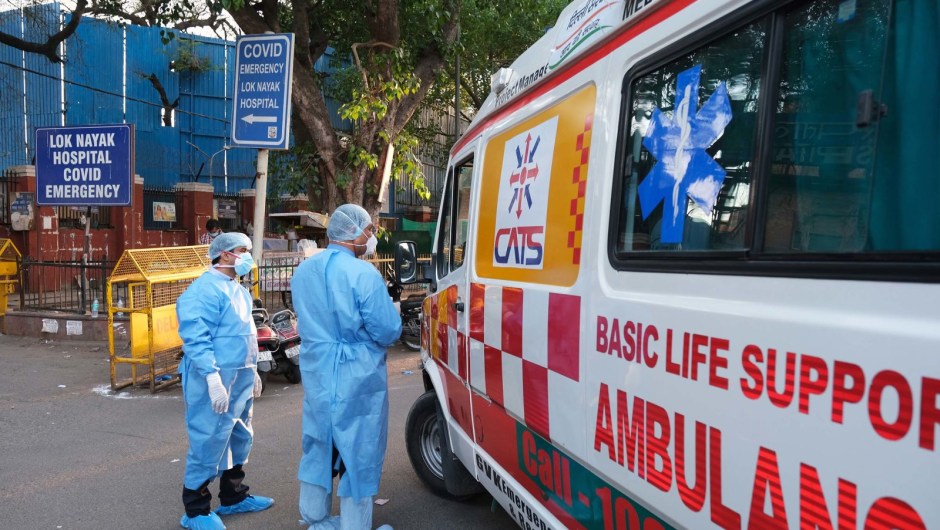
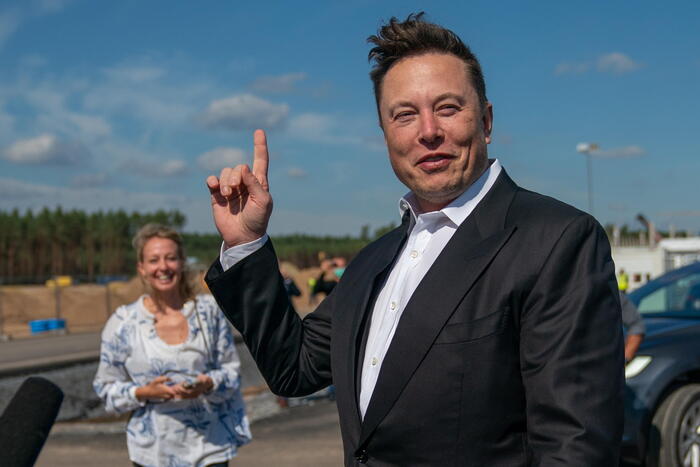
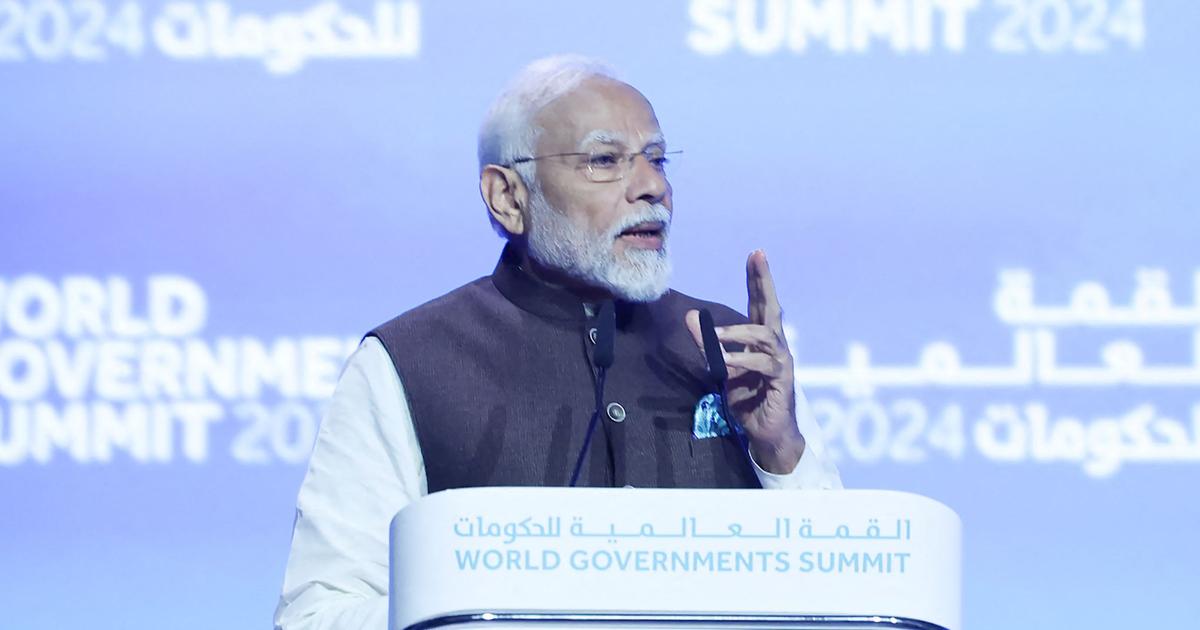

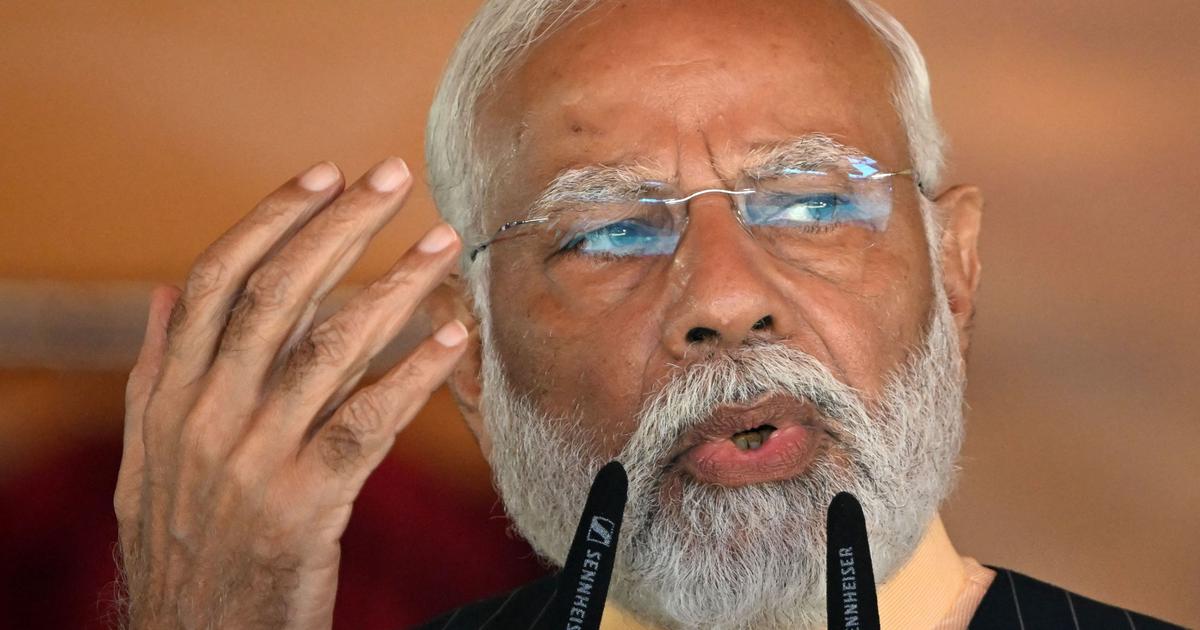

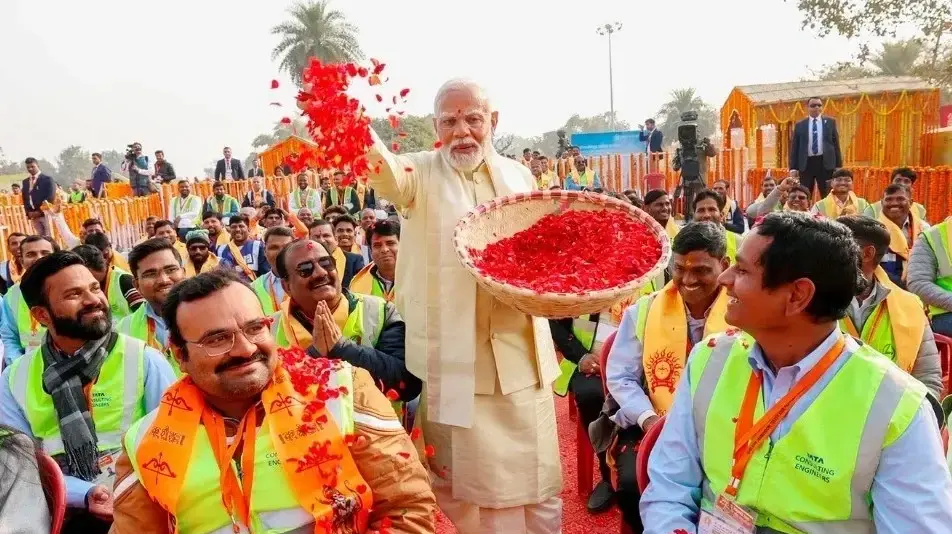


/cloudfront-eu-central-1.images.arcpublishing.com/prisa/KMEYMJKESBAZBE4MRBAM4TGHIQ.jpg)


